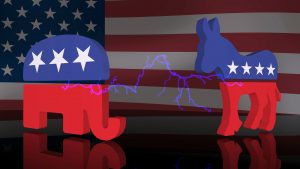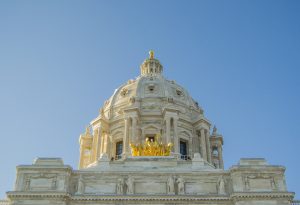Author: Jarod Bona
I bet your first question is “What is iatrogenics?”
Have you ever gone to the doctor for something minor, only to take the prescribed medication and suffer through side effects that are worse than the initial ailment?
Iatrogenics is your net loss in welfare from the doctor. Iatros means healer in Greek. Iatrogenics is the loss caused by the healer.
The Hippocratic Oath, of course, is “first do no harm.” But it doesn’t always work out that way.
This term came up in my re-reading of Antifragile by Nassim Taleb. This is one of my favorite books of all time and I highly recommend that you read it, along with everything else that Taleb writes. And not just because we both advocate for deadlifts.
If you are a fan of Nassim Taleb, you might enjoy our article on Antitrust, Antifragility, Blockchain, and the Departement of Justice.
Dr. Ignaz Semmelweis
Taleb, in Antifragile, tells the story of Austro-Hungarian doctor Ignaz Semmelweis.
In the early to mid-1800’s, treatment by doctors wasn’t, according to Taleb, a net positive—going to the doctor actually increased your chance of death. This is iatrogenics—the healer, if you net the positive and negative, wasn’t good for your health.
Dr. Semmelweis noticed that women giving birth were substantially more likely to die of childbed fever if they were treated by doctors than if they were treated by mid-wives. Semmelweis didn’t figure out exactly why this was, but he did discover that if doctors cleaned their hands and medical instruments with a strong disinfectant, the rate of childbed fever dropped dramatically. The deaths, of course, were coming from the hospital.
You might think that the next part of the story is that people hailed Dr. Semmelweis a hero and the rate of women dying in childbirth fell dramatically from that point in time. Maybe there was a parade.
Sadly, no.
Dr. Semmelweis’s approach worked, but it wasn’t a theory developed by the “experts” and implicit, well, explicit, in his discovery of the disparity in deaths between doctor-treated patients and mid-wife-treated patients was the idea that doctors were harming their patients—killing them, in fact.
Dr. Semmelweis apparently wasn’t polite and passive in his criticism; Taleb points out that Semmelweis, for example, called the doctors “a bunch of criminals.” Semmelweis’s ideas contradicted the conventional wisdom and the people that could change the policy probably didn’t like him. Semmelweis tried to convince doctors and relevant policy makers to change, but they wouldn’t.
This led to despair and depression for Ignaz Semmelweis. And he ended up in an asylum where he died of a hospital fever, in sad irony.
Innovation in Ideas
The lessons from this story are plentiful. Obviously, doctors should wash their hands. And this, of course, is a good example of an iatrogenic situation. But, just as significantly, we must understand that our assumptions and the “experts” are sometimes wrong. And it is critical that we don’t shut out ideas that grow from the bottom up that question the experts, who force their ideas from the top down.
For example, when certain social media websites decided to hide or warn against any information relating to Coronavirus that contradicted the World Health Organization dictates, they created major systematic risks and the potential for situations like that of Dr. Semmelweis’s warnings about washing hands and killing pregnant women. Mandating information flow from the top-down creates a dogma that eliminates the possibility of bottom-up innovation and insights that can improve humanity.
Indeed, the World Health Organization, like many “experts,” and others were wrong, many times over. Wrong isn’t necessarily bad—we can learn from wrong. But forcing a specific perspective or truth on everyone, even if it is the conventional wisdom and or a widespread belief, freezes the current state of science and thinking wherever it is, instead of allowing it to prosper, grow, and progress.
The idea that science uncovers facts is true, but only for a static moment. By contrast, time is dynamic and “facts” change with it.
Think back 20 years, 40 years, 100 years, or 1000 years to what was conventional wisdom and how wrong it was. Also think back to the groups and hierarchies that tried to lock-in those ideas—which at the time were widespread and thought of as the truth or as facts. Think about Galileo.
The foundation of federal antitrust law is that “The heart of our national economy long has been faith in the value of competition.” Allowing competition creates opportunity, from the bottom up, for innovation, along with high quality and low prices, to prosper.
The same is true of ideas. If we create monopolies for ideas, even if they are considered established facts, the quality of our ideas and society will diminish. Innovation will stagnate. The experts are often wrong—let’s not follow them off the cliff, or more accurately, let’s not let them talk us off a cliff while they sit on their perch without skin in the game, preaching.
Iatrogenics Outside of Medicine
Back to Iatrogenics.
A problem that Taleb identifies is that, although mostly discussed in the context of medicine, iatrogenics is not limited to that field. Professionals and others of all walks of like sometimes create more harm than good.
In Antifragile, Taleb includes a handy table that shows interventions of various fields and the resulting iatrogenics/costs. For example—here is something that hits home in California: In Ecology, micromanaging away from forest fires can worsen total risks, by creating larger “big ones.”
Economics is an obvious example where intervention can cause harm—even intervention that appears “good” on the outside. You may agree or disagree, but Taleb cites manipulation of the business cycle, i.e. trying to make the ups and downs disappear, as a major source of fragility, which will lead to deeper crises when they happen.
Taleb cites several examples and they are interesting and persuasive, but he unfortunately leaves out your favorite profession—the antitrust attorney.
Let’s talk about the iatrogenics of antitrust attorneys.
 The Antitrust Attorney Blog
The Antitrust Attorney Blog












